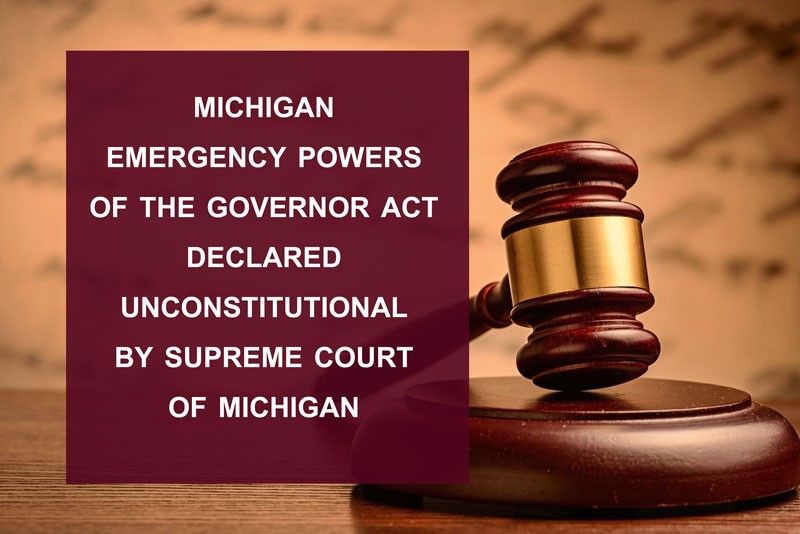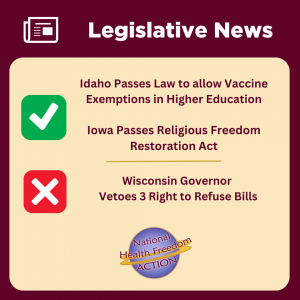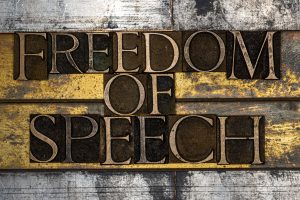

The Michigan Emergency Powers of the Governor Act
DECLARED UNCONSTITUTIONAL
By Supreme Court of Michigan
On October 2, 2020, The Supreme Court of the State of Michigan issued an opinion declaring the Michigan EPGA (Emergency Powers of the Governor Act) unconstitutional. The Court’s conclusion was based on the fact that the law “purports to delegate to the executive branch, the legislative powers of state government—including its plenary police powers—and to allow the exercise of such powers indefinitely.” [i]
The high Court said the scope of the law and the expansiveness of the authority it concentrates in a single public official was “extraordinary”. The majority of the Court joined in the conclusion that the EPGA law was unconstitutional.
The Michigan Attorney General issued a statement saying that in light of the Supreme Court’s decision the AG will no longer enforce the Governor’s Executive Orders through criminal prosecution. [ii]
Given the sweeping activation of police power by Governors across the country, we are at a crossroads in America. The architecture of our constitution is at stake. The balance of power between the Legislative branch of government, the Executive branch, and the Courts is critical. Court cases are now going forward to challenge the expansive orders of Governors in many states. Even concerned minority-controlled legislatures are pleading with Governors to involve the entire legislature in their orders.
We must do all we can to make sure that the three branches of our government function according to the constitution in order to protect the longevity of our country and forever protect our fundamental and human rights and civil liberties.
Liberty, including the freedom to make our own decisions about our own bodies and health, is our American heritage, our American foundation. As a recent federal Court in Pennsylvania striking down an executive branch order stated:
The Court declares, therefore, that the stay-at-home components of Defendant’s’ orders were and are unconstitutional. Broad population-wide lockdowns are such a dramatic inversion of the concept of liberty in a free society as to be nearly presumptively unconstitutional unless the government can truly demonstrate that they burden no more liberty than is reasonably necessary to achieve an important government end. The draconian nature of a lockdown may render this a high bar, indeed. [iii]
And
The constitution sets certain lines that may not be crossed, even in an emergency.[iv]
America is experiencing the distinct opportunity to test the limits of state police power and the functionality of the architecture of the three branches of the United States government and its commitment to freedom. It is our hope that we will work together with all the miraculous talents that Americans have, to cope with emergencies now and in the future, in ways that do not infringe upon our most basic freedoms of life, liberty, and the pursuit of happiness.
[i] Midwest Institute of Health v. Governor of Michigan, 2020 Mich. Docket No. 161492. Argued on request to answer certified questions September 9, 2020, Decided October 2, 2020.
[ii] Michigan Attorney General Statement Regarding Michigan Supreme Court’s Recent Decision, October 4, 2020, accessed online October 9, 2020 @ https://www.michigan.gov/ag/0,4534,7-359-92297_47203-541288–,00.html
[iii] County of Butler v. Wolf, W.D. Pa., 2020, Civil Action No. 2:20-cv-677, (September 14, 2020)
[iv] Id. At 66.




